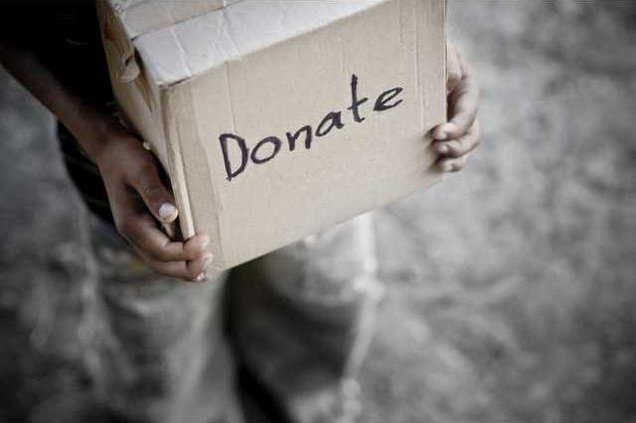There might soon be a way to track your charitable giving. The International Rescue Committee, a global humanitarian relief organization, has made available to all humanitarian groups a FedEx-style package tracking system, as Wired described it, to track donated goods.
The IRC, founded by Albert Einstein in 1933, delivers hundreds of millions of dollars of goods around the world each year. In 2012, the company, with money from grants, developed the Commodity Tracking System. Last week, IRC announced in a press release that it has chosen to open source the technology.
CTS consists of two parts: an Android app and a server-side package tracking system, Wired explained. Every package the IRC delivers to its partners in Syria is tagged with a unique QR code. The server includes a database of all the different codes and a list of what supplies are included in the package corresponding to each code.
Tracking systems arent new, but they are to the charity industry. Since Americans are giving more and more 2014 was the most charitable year on record the technology is especially overdue.
One of the biggest benefits of CTS is accountability, an area charitable organizations have struggled with as of late. In May, federal authorities cracked down on four cancer charities that bilked donors out of $187 million, according to The Washington Post. A few weeks later, a Propublica investigation, titled How the Red Cross Raised Half a Billion Dollars for Haiti and Built Six Homes, raised concerns over one of Americas most trusted charities.
Domestically, the rules governing giving are not enforced, according to a story on charity fraud in Deseret News National. Internationally, there is even less oversight. As a result, donated goods are sometimes intercepted by corrupt government officials. With CTS, the hope is that charities can accurately monitor the status of donations, ensuring that supplies reach intended local partners, and donors, satisfied with the results of their donation, continue to contribute.
For now, experts recommend doing some research before committing to a charity. Activists and fundraiser Dan Pallotta, in a TED talk, advised people to figure out what cause they want to have an impact on, and take time doing research to find out the organization they feel is doing the best work on that problem. Then, make them your charitable partner for life.
The IRC, founded by Albert Einstein in 1933, delivers hundreds of millions of dollars of goods around the world each year. In 2012, the company, with money from grants, developed the Commodity Tracking System. Last week, IRC announced in a press release that it has chosen to open source the technology.
CTS consists of two parts: an Android app and a server-side package tracking system, Wired explained. Every package the IRC delivers to its partners in Syria is tagged with a unique QR code. The server includes a database of all the different codes and a list of what supplies are included in the package corresponding to each code.
Tracking systems arent new, but they are to the charity industry. Since Americans are giving more and more 2014 was the most charitable year on record the technology is especially overdue.
One of the biggest benefits of CTS is accountability, an area charitable organizations have struggled with as of late. In May, federal authorities cracked down on four cancer charities that bilked donors out of $187 million, according to The Washington Post. A few weeks later, a Propublica investigation, titled How the Red Cross Raised Half a Billion Dollars for Haiti and Built Six Homes, raised concerns over one of Americas most trusted charities.
Domestically, the rules governing giving are not enforced, according to a story on charity fraud in Deseret News National. Internationally, there is even less oversight. As a result, donated goods are sometimes intercepted by corrupt government officials. With CTS, the hope is that charities can accurately monitor the status of donations, ensuring that supplies reach intended local partners, and donors, satisfied with the results of their donation, continue to contribute.
For now, experts recommend doing some research before committing to a charity. Activists and fundraiser Dan Pallotta, in a TED talk, advised people to figure out what cause they want to have an impact on, and take time doing research to find out the organization they feel is doing the best work on that problem. Then, make them your charitable partner for life.

